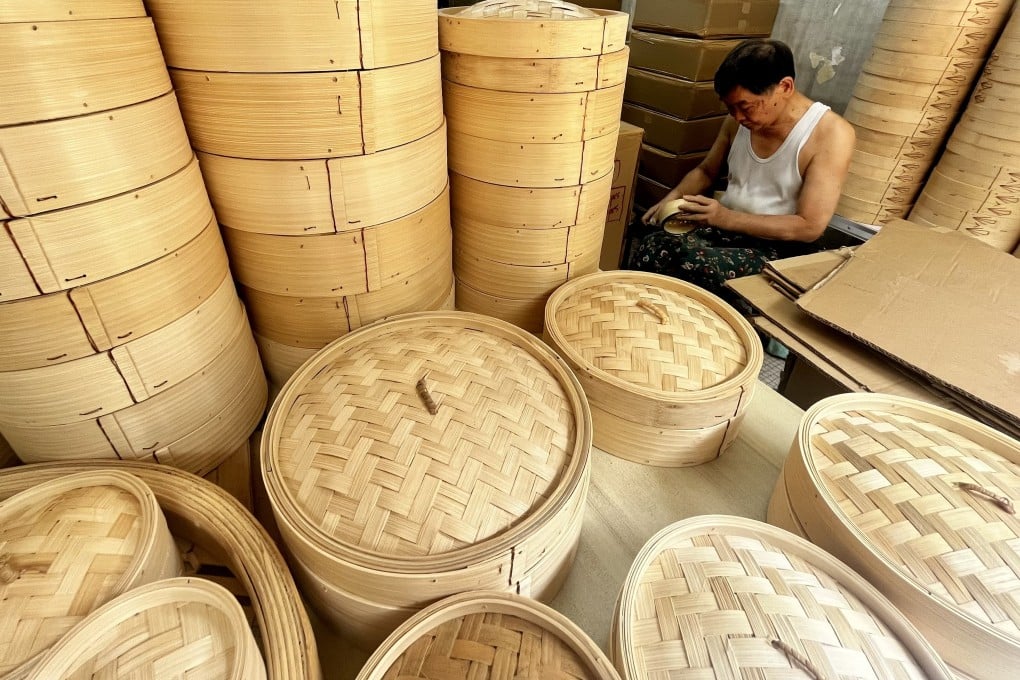Advertisement
A Hong Kong dim sum essential: why bamboo steamers are such a vital part of one of the city’s most loved food traditions
- Traditional bamboo steamers are still preferred by many Hong Kong chefs as they evenly distribute heat and absorb moisture better than metal and glass ones
- Bamboo also adds a subtle, earthy flavour to food, one chef says, and being a natural and renewable material, also ticks the sustainability box
Reading Time:4 minutes
Why you can trust SCMP
2

Lam Ying-hung, pliers in hand, afternoon sun on his face, is in the zone as he applies the finishing touches to a mini bamboo steamer.
“It takes about an hour to make a small one,” says the youthful-looking 73-year-old, sitting on a stool in the Tuck Chong Sum Kee Bamboo Steamer Company in Sai Wan, steamers of all sizes stacked high around him.
A fifth-generation craftsman who left secondary school to follow in his father’s footsteps, Lam has bamboo in his blood.
After his family relocated the business from Guangzhou to Hong Kong in the late 1950s, trade boomed. By the ’80s, the landscape had shifted, rising labour and production costs combining to send factories scurrying to cheaper mainland China.

Today, most bamboo steamers are mass-produced by machines across the mainland Chinese border. Lam’s company is one of the few in Hong Kong still hand-making them.
The Legacy House in the Rosewood Hong Kong, in Tsim Sha Tsui, sources its bamboo steamers from Tuck Chong Sum Kee. Preserving traditional crafts aligns with the Cantonese restaurant’s philosophy.
Advertisement
